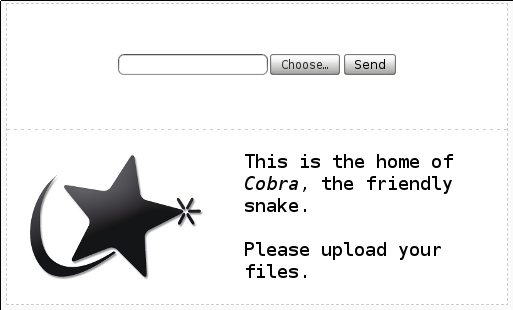Beyond e-mail
We are currently experiencing a paradigm shift. Just a few years ago, e-mail was used to communicate, and file transfer was done via ftp. Nowadays, the majority of users employs e-mail for file transfer and communicates via skype. Diverting so extremely from the intended use of programs and protocols, however, may have adverse consequences for all of us, not only for the least-experienced of users (the LEOs). To illustrate this statement, read the following (only slightly distorted) anecdote:
The boss is calling. E-mail isn't working, he states gravely, and the half whining, half accusatory tone of his voice leaves no doubt as to who he believes to be responsible for this absolutely (!) unbearable (!) situation. Before hanging up, he takes the oppurtunity and emphasizes his enthusiasm and his devotion in general, and his bitter disappointment and utter frustration with the IT "situation" in particular. 😄
Instead of checking the mail servers (which you know to run since months without a single hitch), you immediately leave for the bosses office. And what you find there is a Thunderbird struggling to synchronize the local inbox after a hard reset has corrupted the index. Since said inbox is now at 60 GB, that takes some time ...
How can an e-mail inbox grow to such grotesque dimensions? Well, I tell you how. The secretary of a very important contact of the boss is receiving an interactive pdf form (212 kB). Printing this form, so that $VIP can mark the checkboxes with his MontBlanc fountain pen, our sweet secretrary next scans the document with the highest available resolution, and then uses Adobe Distiller in its highest quality settings to export it as a pdf (41 MB) which she then attachs to the mail to the boss. Since she finds this procedure to work flawlessly, Mrs. Sweet uses the same work flow for all documents, including those written by herself in MS Word (no, she did not yet discover the pdf icon there). A seminar announcement consisting of two lines of text thus takes 2 MB. You get the same seminar announcement, by the way, also from Mrs. Sweet's colleague Ms. Sour, who was mightily impressed by Mrs. Sweet's efficient work flow.
Now, of course one can try and educate the LEOs, explaining that e-mail isn't designed for exchanging files above a certain size. What's more effective, however, is to simply limit the LEOs' mailbox size to 5 MB ... 😉
The remaining question, of course, is what to offer the LEOs as alternative. We nerds can put large files on our own server (in my case the one serving the very page you're reading). Other nerds then access these files via scp and sftp. Other people may also exchange files via Ubuntu One or Dropbox. Hell, one could even use Opera Unite for that purpose. All of that, however, is way too complicated for Mrs. Sweet and her boss.
Honest answer? Well, there's no solution. Two LEOs just shouldn't exchange files. 😄
What I personally use for exchanging files with LEOs? A minimum webserver provided by the python scripts droopy and woof (and I'm not alone there). All the actual 'work' is up to me then (including forwarding ports on firewalls and the likes 😉 ).
|
#!/bin/bash
|
|
#droopy
|
|
|
|
droopy.py -m "<p>This is the home of <i>Cobra</i>, the friendly snake.<br><br>
|
|
Please upload your files.</p>" -p ~/temp/upload/mandriva.jpg -d ~/temp/upload
|
What Mrs. Sweet sees is after I tell her the URL:

Here, the download dialog of the browser opens, directly offering the zipped directory defined in the shell script.